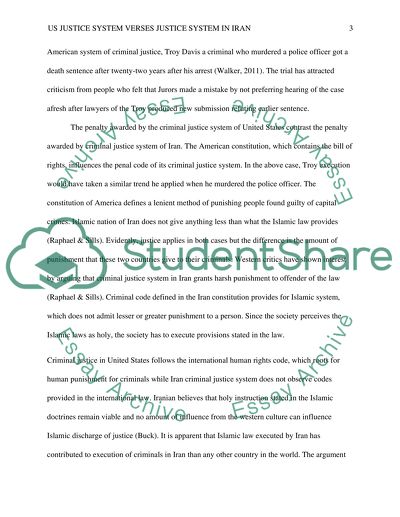Cite this document
(Justice System of Iran Case Study Example | Topics and Well Written Essays - 2000 words, n.d.)
Justice System of Iran Case Study Example | Topics and Well Written Essays - 2000 words. Retrieved from https://studentshare.org/law/1592730-the-comparison-of-the-us-justice-system-against-irans-justice-system-criminal-and-civil-law
Justice System of Iran Case Study Example | Topics and Well Written Essays - 2000 words. Retrieved from https://studentshare.org/law/1592730-the-comparison-of-the-us-justice-system-against-irans-justice-system-criminal-and-civil-law
(Justice System of Iran Case Study Example | Topics and Well Written Essays - 2000 Words)
Justice System of Iran Case Study Example | Topics and Well Written Essays - 2000 Words. https://studentshare.org/law/1592730-the-comparison-of-the-us-justice-system-against-irans-justice-system-criminal-and-civil-law.
Justice System of Iran Case Study Example | Topics and Well Written Essays - 2000 Words. https://studentshare.org/law/1592730-the-comparison-of-the-us-justice-system-against-irans-justice-system-criminal-and-civil-law.
“Justice System of Iran Case Study Example | Topics and Well Written Essays - 2000 Words”. https://studentshare.org/law/1592730-the-comparison-of-the-us-justice-system-against-irans-justice-system-criminal-and-civil-law.


